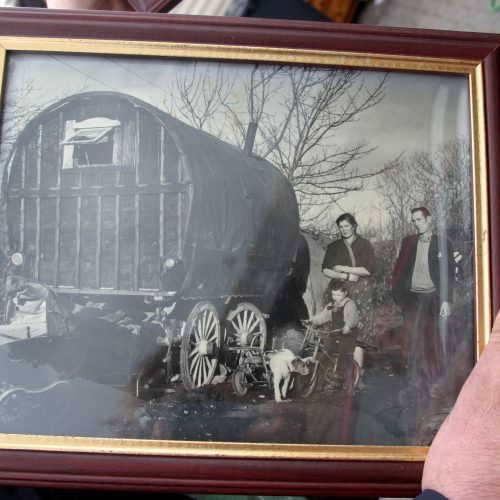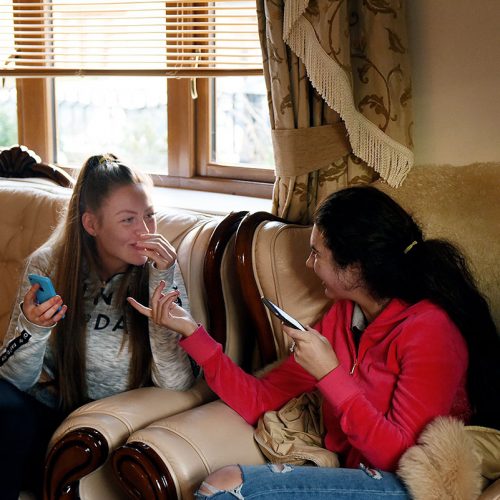There are around 30,000 Gypsies and Travellers in London. Their culture and traditions have developed through a nomadic way of life over centuries. But although they try to maintain this, the lack of pitches on local authority sites and draconian eviction powers make it difficult for many to go on the road now. Around 85% of families in London have been forced to live in housing. Some families are still living on roadside encampments or choose to still travel in the summer months.
Romani Gypsies and Irish Travellers are recognised as ethnic groups under the Race Relations Act 1976, and they are protected by the Equality Act 2010. But prejudice, discrimination and isolation affect their access to services, jobs and accommodation. Negative media coverage increases feelings of alienation.

Culture, homes and jobs
The ancestors of today’s Gypsies and Travellers in London gathered at traditional stopping places in the city. Their skills included chair caning, basket weaving and tin smithing. Some were travelling showmen and fairground people, others worked alongside other Londoners as seasonal labourers.
But the rapid expansion of London after World War Two meant many traditional stopping places were replaced by housing and it became harder to survive using traditional trades. Families were forced to stop on derelict land and were frequently moved on.
Gypsy and Traveller campaigners lobbied governments for sites, and in 1968 new laws required councils to create places for them to stay. Council run sites meant Gypsies and Travellers could continue living in caravans, maintain their communities, and get access to education and health services.
But in 1994 the government removed this duty on councils, and increased powers to evict. Since then many council sites have closed and no new sites have been built for the past 20 years.
So the community faces a huge housing crisis in London, with many families living on the side of the road and facing constant evictions. The majority of Gypsies and Travellers in London have been forced into housing where they are isolated from their families and traditional way of life. As a result, they can become vulnerable – because of prejudice, instability in the private sector and lack of social rented housing.
Travelling does not define us. Being a Traveller is not just about travelling – it is also about our beliefs. I do not want this law to go through. I don’t want in the future for me and my children to go through the hassle we are going through now.

Young people
Young Gypsies and Travellers have immense potential. But opportunities for work and training are often limited within their communities. The 2011 Census revealed that 60% of the over-16s who identified themselves as of Gypsy/Traveller ethnicity ended up with no formal qualifications.
Many young people want to continue their education and gain work skills, and then move into the wider world to pursue their goals. However they can feel unprepared and out of place when starting vocational and creative courses. They can feel threatened and isolated just by being who they are. Unfortunately, many of these young people drop out and turn back to their communities to find acceptance and protection.
In turn, parents and family members fear for the safety of their children if they move outside the community. Experiences of social prejudice, discrimination and stigma continue over many generations, and make Gypsy and Traveller communities more fearful and isolated.
Our work with young Gypsies and Travellers aims to empower young people to overcome the barriers they face and engage actively in society with confidence and pride.